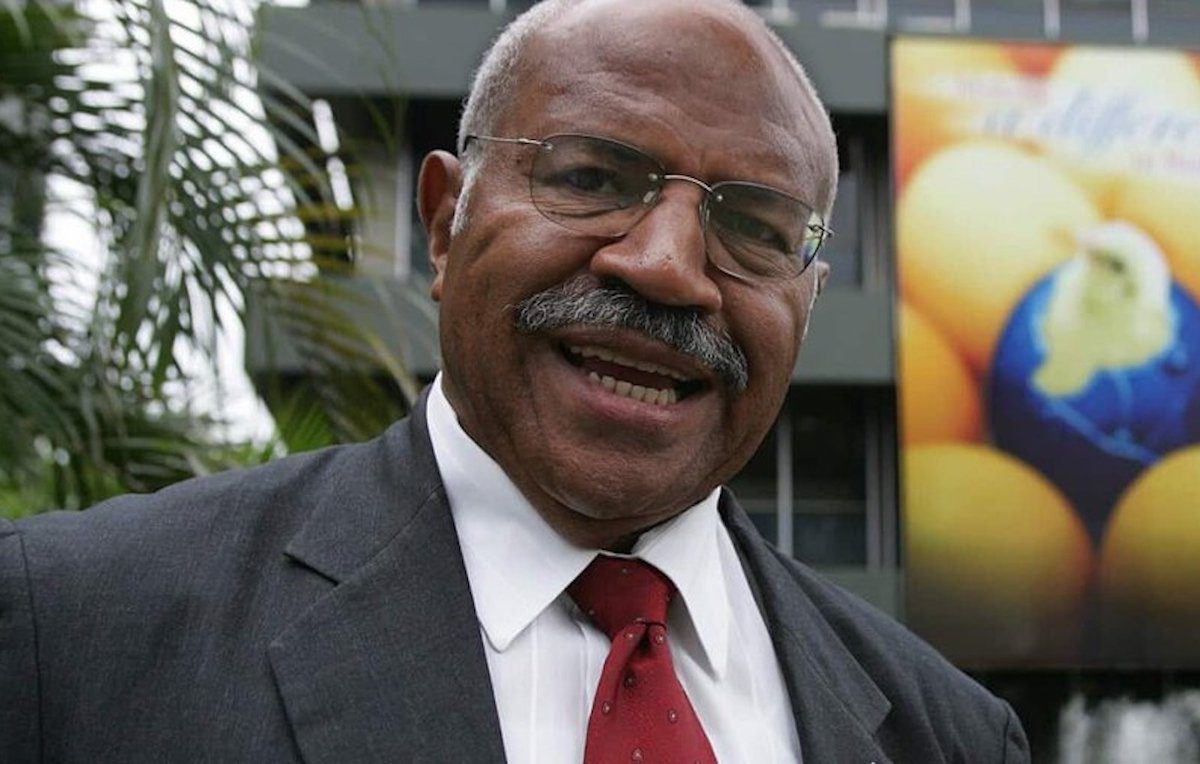Global Courant 2023-04-27 10:28:28
The diplomatic spat surrounding Chinese Vice Foreign Minister Ma Zhaoxu’s visit to Suva in April 2023 captured shifting geostrategic developments in Fiji.
Ma’s meeting with Fijian Prime Minister Sitiveni Rabuka was canceled due to a death in Rabuka’s family. Deputy Prime Minister Manoa Kamikamica was instead put forward to meet with Ma.
Chinese officials initially rejected the proposal, insisting that Ma meet only with the Fiji prime minister. Ma’s visit was supposedly before deliver a message directly to Rabuka about the importance of “acting with caution on Taiwan” and respecting Beijing’s “red line”.
The episode reflected growing tensions between China and Fiji. Under its new coalition government, Fiji is showing signs of greater alignment on security with its traditional partners – Australia, New Zealand and the United States.
Rabuka appears to be tipping Fiji away from its predecessor’s approach of “friends to all, enemies to none.” Rabuka went so far as to suggest that this approach, followed by some Pacific countries, should be reconsidered. Fiji’s friends are watching closely.
Early signs of Fiji’s dismantling of its security relationship with China began under former Prime Minister Josaia Voreqe Bainimarama. Bainimarama was concerned about last year’s regional implications Solomon Islands-China Framework Agreement on Security Cooperation and Beijing’s proposed — and rejected — multilateral security and trade pact.
But in previous years, security cooperation between Fiji and China had deepened significantly. In 2011, the Fiji Ministry of Defence, National Security and Immigration and the Chinese Ministry of Public Security signed the now-obsolete Memorandum of Understanding on Police Cooperation (MOU). This was previously discarded by Rabuka in 2023.
Rabuka has turned his back on China and reversed the policies of his predecessor. Image: Screengrab/Facebook
The MOU is worth considering for what it reveals about security cooperation and strategic autonomy in the Pacific. The Memorandum of Understanding focused on bilateral cooperation to tackle cross-border crime, intelligence sharing, police capacity building and exchange of technology and equipment.
Many security cooperation activities fell under the remit of the MOU. These include the secondment by China of four officers to Fiji and two Fijian officers were added to the Guangzhou Bureau for Public Security in 2014.
The Fijian police took courses in China that year. China donated about AU$654,000 (US$432,665) worth of vehicles, communications, surveillance and anti-riot equipment to support the 2014 elections in Fiji.
The 2011 MOU provided the bilateral framework for enhanced operational capabilities and cooperation, including, in 2016, efforts to acquire Chinese drones. In 2017, this resulted in a joint operation between Fiji and Chinawith several hundred Chinese police officers arriving in Fiji to arrest and deport 77 Chinese nationals.
In 2021, a Chinese police liaison officer was stationed in Fiji, signaling China’s shift to a more networked approach to security in the region.
Fast forward to Fiji’s election in December 2022. Sandra Tarte claims Rabuka has already signaled his dissatisfaction with China’s involvement in the affairs of Fiji. Rabuka’s coalition member, the National Federation Party, made an oblique reference in 2018 to reducing dependence on China.
The then leader of another coalition member, the Social Democratic Liberal Party, Viliame Gavoka, stated that he wanted Fiji’s foreign relations close to Australia and New Zealand.
Members of Fiji’s new government were quick to signal Fiji’s geopolitical shift. Deputy Prime Minister Julia Gavoka and Minister of the Interior Pio Tikoduadua tweeted their respective meetings with Taiwan’s representative in Fiji.
In March 2023, Fiji restored the name of the Taiwanese mission to Trade Mission of the Republic of China (Taiwan) to Fiji, after being downgraded to Taipei Trade Office in 2018.
In January 2023, Rabuka ended Fiji’s police MOU with China. He stated that Chinese state security personnel were not needed to continue working with the Fiji Police. This, in combination with that of Rabuka public support for AUKUS – made a surprise move strong regional criticism of the scheme – signals a shift towards overt strategic alignment with Australia and the United States.
Fiji’s then Prime Minister Josaia Voreqe Bainimarama (R) shakes hands with Chinese Premier Li Keqiang (L) at the Great Hall of the People in Beijing on May 16, 2017. Photo: AFP/Pool/Nicolas Asfouri
It is less clear how Fiji will reconcile this shift with its foreign policy of “friends to all, enemies to none” and its membership in the Non-Aligned Movement.
An important question is whether Fiji’s strategy of balancing its security and economic priorities can withstand both coalition politics and regional calls for strong action against the militarization of the Pacific. This is remarkable given the concern that AUKUS violates the Pacific’s most important nuclear non-proliferation agreement, the 1985 Treaty of Rarotonga.
As a member of the sub-regional bloc, the Melanesian Spearhead Group (MSG), wonder how Fiji will reconcile its stance on China with possible Chinese security assistance negotiated under the MSG regional security strategy.
The coalition government’s rejection of China as a security partner disrupts China’s growing role as a security stakeholder in the Pacific. It also challenges China’s approach to security assistance, including by questioning China’s credibility as a security partner and hindering China’s pursuit of a multilateral security pact.
In the case of Fiji, China has been focused on enforcing Chinese law against its diaspora, with little demonstrated interest in supporting regional efforts to combat cross-border crime. This leads to critical areas becoming isolated and lacking overview and coordination.
While the coalition government supports a shift in security policy, it would be a mistake to assume that this extends to undermining Fiji’s wider bilateral relationship with China. Rabuka has reaffirmed Fiji’s One China policy and called on China to play the role of “development partner.”
Fiji’s new geopolitical slant is testament to the ways in which Pacific states – increasingly concerned that the pursuit of national interests and strategic choices are threatened – are trying to balance strategic competition.
Jose Sousa-Santos is a Senior Fellow at Australia Pacific Security College, Australian National University. Anna Powles is an associate professor at the Center for Defense and Security Studies at Massey University.
This article was originally published by East Asia Forum and has been republished under a Creative Commons license.
Similar:
Loading…




